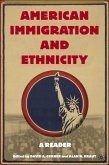Derderian looks at the large North African population in France and their attempts for recognition in a country which has long denied its rich immigration past and present. He considers how the North African community has developed from the late 1970s to the mid-1990s, especially in their political and cultural initiatives. Derderian examines the radio station Radio Beur and the television show La Famille Ramdam , as well as political initiatives and the role of ethnic minorities in defining prominent French sites of memory such as the working-class suburbs or banlieues and the Algerian War. Based largely on oral history, Derderian draws from a wealth of interviews with North African artists and creators as well as various French cultural actors.
'The book is easy to read and will appeal to a lay as well as scholarly audience. Anyone interested in French politics, history, North African immigration, immigration, minority studies, etc. will find the book interesting or useful.' - Patricia Lorcin, Texas Tech University
'Richard Derderian's North Africans in Contemporary France: Becoming Visible, is a chronicle as engaging, complex, and historically rich as its subjects: North African peoples from Algeria, Morocco, and Tunisia shaped and shaping themselves as beurs and citizens in France from the 1970s through the 1990s. Taking issue with notions of minorities, multiculturalism, memory, and immigration, Derderian reconstructs the multiple pasts and ethnic and religious questions which frame tales of North African adaptation, assimilation, and apartness in France from the Algerian War to the Parisian banlieues of the late twentieth century. Drawing on extensive interviews and scholarly literatures with a critical flair, Derderian offers insightful portraits of popular political movements, community organizations, artists, Radio Beur pioneers, and North African television characters, shaping a vision of contemporary France as a contested, changing landscape of vital and ambivalent identities.' - Matt Matsuda, Rutgers University
'Derderian's book is a welcome analysis of one of the most controversial topics in contemporary France, namely the place of North Africans within French society. Clearly written, he deals with issues such as the memory of wars of decolonization and the role of Islam in a subtle and perceptive manner. As such it should be required reading for anybody who wants to know how Europe is grappling with the post-colonial world.' - Martin Evans, Reader in Contemporary History, University of Portsmouth, UK
'[T]he book provides a valuable history of the North African immigrant community from the 1970s to the mid-1990s and intervenes intelligently in important, ongoing debates over memory and history in France.' - Oral History
'The book is easy to read and will appeal to a lay as well as scholarly audience. Anyone interested in French politics, history, North African immigration, immigration, minority studies, etc. will find the book interesting or useful.' - Patricia Lorcin, Texas Tech University
'Richard Derderian's North Africans in Contemporary France: Becoming Visible, is a chronicle as engaging, complex, and historically rich as its subjects: North African peoples from Algeria, Morocco, and Tunisia shaped and shaping themselves as beurs and citizens in France from the 1970s through the 1990s. Taking issue with notions of minorities, multiculturalism, memory, and immigration, Derderian reconstructs the multiple pasts and ethnic and religious questions which frame tales of North African adaptation, assimilation, and apartness in Franch from the Algerian War to the Parisian banlieu of the late twentieth century. Drawing on extensive interviews and scholarly literatures with a critical flair, Derderian offers insightful portraits of popular political movements, community organizations, artists, Radio Beur pioneers, and North African television characters, shaping a vision of contemporary France as a contested, changing landscape of vital and ambivalent identities.' - Matt Matsuda, Rutgers University
'Derderian's book is a welcome analysis of one of the most controversial topics in contemporary France, namely the place of North Africans within French society. Clearly written, he deals with issues such as the memory of wars of decolonization and the role of Islam in a subtle and perceptive manner. As such it should be required reading for anybody who wants to know how Europe is grappling with the post-colonial world.' - Martin Evans, Reader in Contemporary History, University of Portsmouth
'Richard Derderian's North Africans in Contemporary France: Becoming Visible, is a chronicle as engaging, complex, and historically rich as its subjects: North African peoples from Algeria, Morocco, and Tunisia shaped and shaping themselves as beurs and citizens in France from the 1970s through the 1990s. Taking issue with notions of minorities, multiculturalism, memory, and immigration, Derderian reconstructs the multiple pasts and ethnic and religious questions which frame tales of North African adaptation, assimilation, and apartness in France from the Algerian War to the Parisian banlieues of the late twentieth century. Drawing on extensive interviews and scholarly literatures with a critical flair, Derderian offers insightful portraits of popular political movements, community organizations, artists, Radio Beur pioneers, and North African television characters, shaping a vision of contemporary France as a contested, changing landscape of vital and ambivalent identities.' - Matt Matsuda, Rutgers University
'Derderian's book is a welcome analysis of one of the most controversial topics in contemporary France, namely the place of North Africans within French society. Clearly written, he deals with issues such as the memory of wars of decolonization and the role of Islam in a subtle and perceptive manner. As such it should be required reading for anybody who wants to know how Europe is grappling with the post-colonial world.' - Martin Evans, Reader in Contemporary History, University of Portsmouth, UK
'[T]he book provides a valuable history of the North African immigrant community from the 1970s to the mid-1990s and intervenes intelligently in important, ongoing debates over memory and history in France.' - Oral History
'The book is easy to read and will appeal to a lay as well as scholarly audience. Anyone interested in French politics, history, North African immigration, immigration, minority studies, etc. will find the book interesting or useful.' - Patricia Lorcin, Texas Tech University
'Richard Derderian's North Africans in Contemporary France: Becoming Visible, is a chronicle as engaging, complex, and historically rich as its subjects: North African peoples from Algeria, Morocco, and Tunisia shaped and shaping themselves as beurs and citizens in France from the 1970s through the 1990s. Taking issue with notions of minorities, multiculturalism, memory, and immigration, Derderian reconstructs the multiple pasts and ethnic and religious questions which frame tales of North African adaptation, assimilation, and apartness in Franch from the Algerian War to the Parisian banlieu of the late twentieth century. Drawing on extensive interviews and scholarly literatures with a critical flair, Derderian offers insightful portraits of popular political movements, community organizations, artists, Radio Beur pioneers, and North African television characters, shaping a vision of contemporary France as a contested, changing landscape of vital and ambivalent identities.' - Matt Matsuda, Rutgers University
'Derderian's book is a welcome analysis of one of the most controversial topics in contemporary France, namely the place of North Africans within French society. Clearly written, he deals with issues such as the memory of wars of decolonization and the role of Islam in a subtle and perceptive manner. As such it should be required reading for anybody who wants to know how Europe is grappling with the post-colonial world.' - Martin Evans, Reader in Contemporary History, University of Portsmouth








